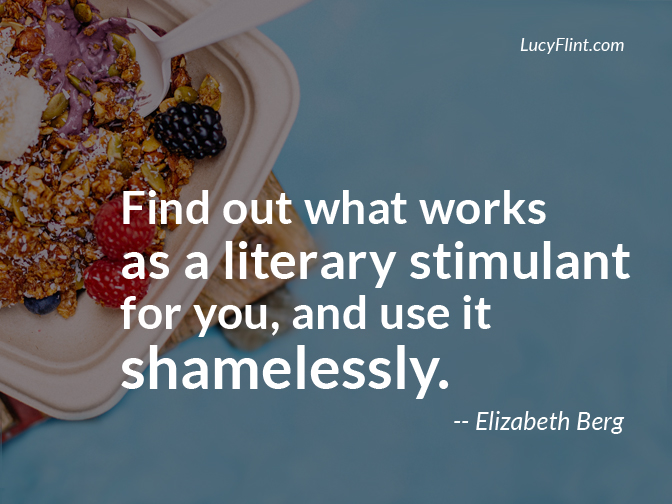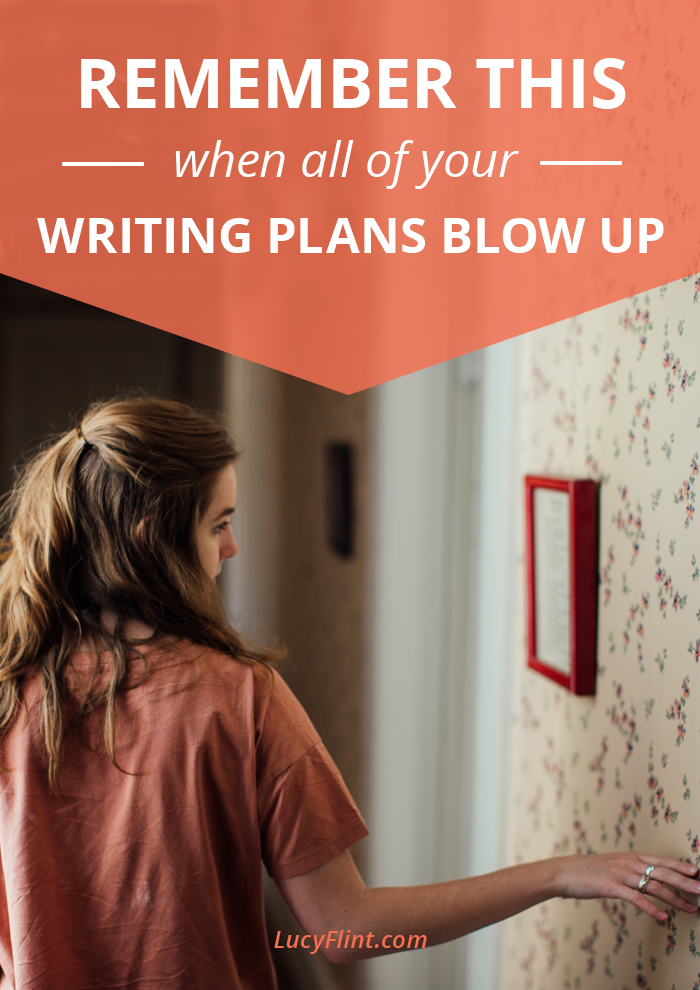When Doubt and Negativity Come Looking for You (and Your Writing), Here's What To Do.
/This is just a plain old straightforward quote. But it's totally lovely.
And I still need to hear it. And you still need to hear it.
This is just a lionhearted essential.
Doris Lessing, writer extraordinaire (she won this tiny, obscure award called the Nobel Prize), said:
"What I did have, which others perhaps didn't, was a capacity for sticking at it, which really is the point, not the talent at all. You have to stick at it."
Happy Monday, in other words.
This kind of philosophy sometimes requires a very large coffee mug, so by all means get one. And then let's have a little chat about perseverance.
... Got your coffee? Me too.
Okay. Look: There are a million things that are going to show up to knock us off course.
Legitimate things, and not so legitimate ones. True reasons for slowing down, and lies that slow us down too.
We're facing redirections, obstacles, setbacks. There are new skills to learn, old habits to discard, better patterns of thinking we can embrace.
It's complicated, busy, and ever-changing.
It can feel like a lot. Heck, let's get real: it is a lot!
Total true confession: I still have moments when I think, just out of the blue, maybe I should chuck it?
This was me. Just last night.
Lying in bed, explaining to my pillow, "It would be so much simpler if I just worked for a bookstore and stopped all this writing nonsense. I would do great at a bookstore. I love recommending books to people! I could read a ton, yay, and there would be so much less wear and tear on my brain. Also, um, paychecks."
Of course, I didn't believe myself as I said all this. Not really.
(Neither did my pillow. It is never fooled.)
In the morning I pulled out this quote and thought, right.
Sticking with it. That's what's right. That's the answer.
This whole writing gig—it isn't won by brilliance. It isn't won with perfect writing routines and spotless writing schedules.
It isn't a game of ideal circumstances.
Nope.
So if you don't feel brilliant this instant, and if your writing routine has developed a serious wobble, and if your schedule has faltered a smidge—no worries.
You are still in the right place.
Because it all comes down to sticking with it. Stick with the writing life.
On the glorious, exhilarating days, yes!
And also on the ones where you feel ragged and dry and aren't really sure it makes sense anymore.
We stick with it.
Which is why I got to my desk today anyway.
Which is why I pulled out my characters (even though I felt grumpy, and I probably did a few big dramatic sighs) and I said, "Hey kids, what should we talk about?"
Which is why I still plunged into my book today. And it maybe wasn't spectacular writing, but it was still right and good and exactly where I should be.
Don't believe the weird funky lies that show up at midnight, or at four on a rainy afternoon, or at a bleak eight-thirty on an overcast morning.
Okay? Don't let those lies seep into your soul.
We're sticking with it, you and me.
Because it doesn't have to look perfect, and it isn't about talent, and it isn't always neat and tidy.
It's just about endurance.
About scribbling a few sentences even on our worst days. About carrying on, learning what we need to learn, and digging a little deeper.
Also, of course, dancing. And also chocolate.
(And if you haven't had a good, shake-everything-loose dance party in your office for a while, you need to. I did today and it fixed so much. And then, of course, so did the chocolate part.)
All of this to say, sometimes it isn't super helpful to pay attention to all of our writerly feelings.
Feelings pretend to be absolute truth tellers, but sometimes, they're full of crap. Or they're only partly true.
I try to say, Thanks for the input; your complaint has been acknowledged. And then I go to the desk anyway.
On my pillow, I said, "Work in a bookstore? Hm. How interesting. You're right, I could wear a collection of brightly colored tights and dye my hair a shocking color and strike up conversations with the charming barista. What a nice idea. ... And then, at night after closing down the shop, would I be crying about the novels I didn't write?"
"Um," said the traitorous feelings. "Um, yeah. Probably."
"That's what I thought." (And my pillow totally agreed.)
Stick with it.
Even if you have the worst case of the Mondays, stick with it.
Sometimes that means you shrink your writing practice to the smallest possible unit. To a mouse-sized writing practice, just to get by.
And then you can blow it back up later to a big, splashy, wonderful writing practice.
Sometimes, if you're a bit battered, you give yourself a week of just reading, all novels all the time, or all poems, or all essays...
But you're still sticking with it. That's the thing.
Move toward it, even on your awful days.
Don't give up.
























